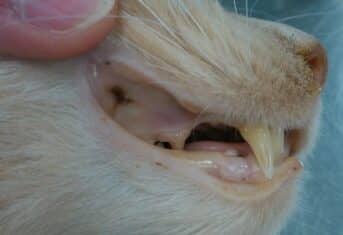Spicing Up Cancer Treatment
Spicing Up Cancer Treatment
 In its new report on pet supplements, the market research group Packaged Facts forecasts a domestic market for pet supplements of $697 million in 2019. This trend is certainly true in the cancer therapy world. As a veterinary oncologist, I know that if your pet receives a diagnosis of cancer, you will be desperate to find treatments with the ability to eradicate the cancer without side effects. In this situation, I know that most owners will most certainly investigate herbal and natural supplements to treat their pet’s tumor, with or without my knowledge. I am here to urge caution: a couple hours spent on the internet can easily convince you that feeding your pet a turmeric spiced salad of mushrooms and broccoli can rid your pet of any ailment, including cancer. With all the available (mis)information out there, here are my thoughts on some herbal and natural remedies which have been scientifically validated as a treatment for cancer – as well as some that look interesting but still need more study.
In its new report on pet supplements, the market research group Packaged Facts forecasts a domestic market for pet supplements of $697 million in 2019. This trend is certainly true in the cancer therapy world. As a veterinary oncologist, I know that if your pet receives a diagnosis of cancer, you will be desperate to find treatments with the ability to eradicate the cancer without side effects. In this situation, I know that most owners will most certainly investigate herbal and natural supplements to treat their pet’s tumor, with or without my knowledge. I am here to urge caution: a couple hours spent on the internet can easily convince you that feeding your pet a turmeric spiced salad of mushrooms and broccoli can rid your pet of any ailment, including cancer. With all the available (mis)information out there, here are my thoughts on some herbal and natural remedies which have been scientifically validated as a treatment for cancer – as well as some that look interesting but still need more study.
Turkey Tail Mushrooms and Hemangiosarcoma
Coriolus versicolor, also known as the turkey tail mushroom, has been brewed into tea for centuries in Asian countries, and more recently used to treat cancer. Currently, it is being investigated as an immune system supplement in human cancer patients in a Food and Drug Administration (FDA) sanctioned clinical trial. This mushroom is also undergoing investigation in veterinary patients, specifically dogs with hemangiosarcoma, because it contains a protein-bound complex sugar which appears to have anti-cancer properties.
Researchers at the University of Pennsylvania School of Veterinary Medicine treated dogs with a commercially available Coriolus versicolor product and found the longest reported survival time for dogs with hemangiosarcoma. More trials are underway to confirm this exciting result and many of the dog patients I see with hemangiosarcoma are already receiving mushroom therapy.
Veggies, Bladder Tumors and Scotties
Scottish terrier dogs have the highest risk of developing bladder tumors of any breed of dog. In a study designed to identify dietary components protective against the development of bladder cancer in Scotties, vegetables proved helpful. In the study, a human member of the Scottie dog’s family completed a dietary survey about their dog including questions about weekly consumption of yellow-orange, green leafy, cruciferous, or other types of vegetables. Scotties without bladder cancer consumed more servings of green leafy and yellow-orange vegetables per week than those with bladder cancer. So, maybe mom was right – eating vegetables is good for you!
Too Soon for Turmeric
A spice of great interest these days is turmeric, Curcuma longa, the yellow spice in Indian curry powder. The subject of intense investigation, one of turmeric’s active ingredients, curcumin, has anti-cancer, anti-inflammatory and antidepressant effects and may prove useful in disparate conditions such as arthritis, cancer and post-traumatic stress disorder. But as of this writing, studies of curcumin are predominantly laboratory studies or studies of research dogs, not pet dogs with disease. In the lone clinical trial of a curcumin extract in dogs with arthritis, a benefit of therapy was not seen. All this indicates that curcumin has medicinal properties but that more research into clinical use of turmeric is needed to identify whether pets with cancer will benefit from this spice.
Melanoma Medicine
Oral melanoma is one of the most deadly tumors in dogs, because these tumors are often advanced by the time of diagnosis and currently available treatments do not cure all dogs. Japanese researchers are investigating an organic compound, lupeol, as a treatment for oral melanoma in dogs. Extracted from olives, mangoes, strawberries, grapes, figs, vegetables, and other medicinal plants, lupeol has shown promise as an anticancer agent in cell culture, rodent models and most recently in a small canine clinical trial in Japan. I find the source of this compound intriguing since we all know grapes and raisins can be deadly for dogs. After reading this, please don’t feed your dog fresh grapes hoping they will help your pet’s cancer. In the meantime, we’ll have to keep our fingers crossed regarding whether we will continue to see promising data on this potential new treatment for canine melanoma.
Too Spicy?
Since most of us have herbs and spices in our kitchen, we assume they are safe, but when it comes to pets, that assumption may not be correct. Don’t crank up the stove and decide home cooking would be healthier for your pet with cancer until you check with your veterinarian about creating a safe and healthy diet for your pet.

































